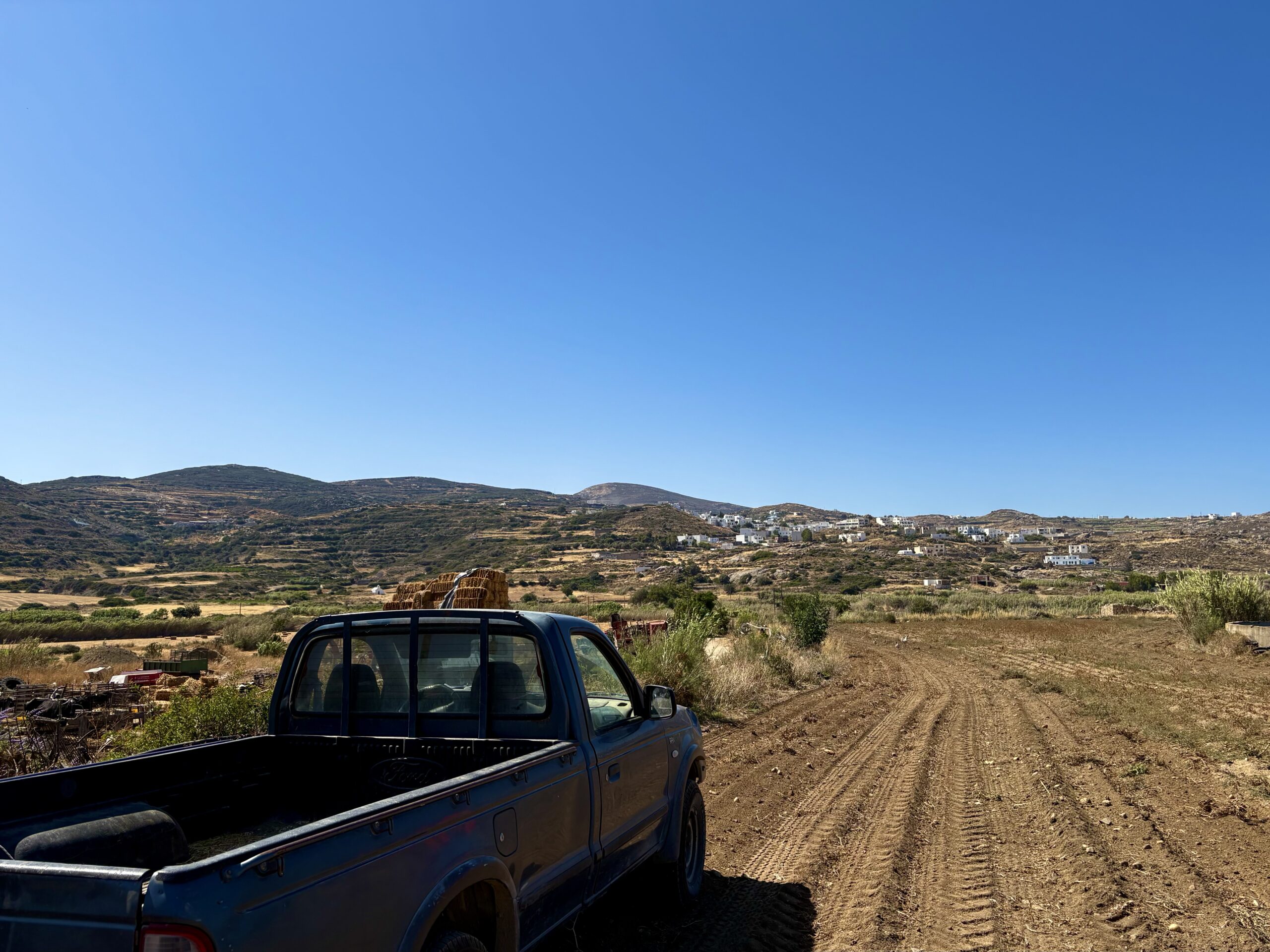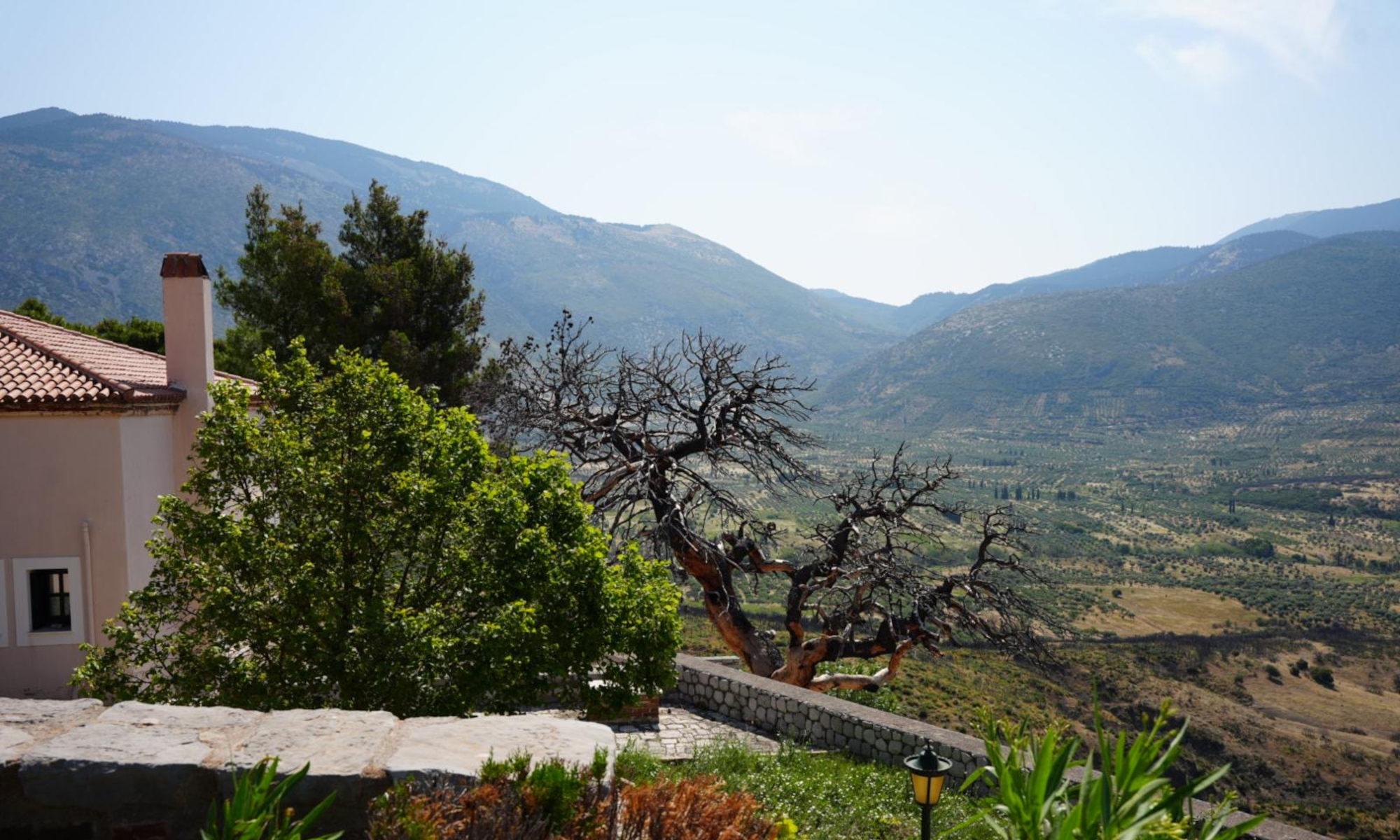The crop that has defined Naxos for centuries is disappearing. What happens next?

by Vivien Wong
On a Tuesday afternoon in late June, sixty-year-old potato farmer Stelios Vathrakokoilis gestured with his cigarette lighter to a well some hundred yards from the field where he stood. “There is water there still,” he said. “In fifteen days, it will be dry.” In 2023, Vathrakokoilis planted seventeen acres of potatoes. That changed last year, when the wells on his land ran dry. “I didn’t plant a thing,” he said. “Nothing, nothing, nothing.”
Vathrakokoilis and his brother, loading crates of potatoes from the morning’s harvest into his own nearby pickup, come from a long line of potato farmers on Naxos, the largest and most fertile of the Greek Cycladic islands. Here, no agricultural product is more famous than the buttery Naxian potato. But recent waves of drought have dried up the supply of water to farms across Naxos. Now, as the island’s potato production dwindles, the future of its producers hangs in the balance.
Vathrakokoilis and his brother grew up in the nineties, when, according to Vathrakokoilis, “farmer parents didn’t want their children to have to endure the same pain and suffering they had.” In his late teens, his father sent him to school to learn English, hoping he’d pursue college instead of potato farming. But he constantly skipped class. “To flirt with chicks,” he added. “And then I fell madly in love with potatoes.”
Dimitris Kapounis, president of the Union of Agricultural Cooperatives of Naxos, considers the potato a kind of “ambassador” for the island. For the past decade, the island has drawn thousands of visitors for the annual Naxos Potato Festival, one of the most popular gastronomic festivals in the Aegean. During the most recent festival in 2019, Naxos broke the Guinness World Record for the largest quantity of fried potatoes served at once: 625 kilograms, or 0.7 tons. At the time, Naxos was producing over seven million kilograms of potatoes per year. This past year, according to Kapounis, the island has produced less than three thousand kilograms—about two to three tons.
“It’s not my fault, nor God’s, nor nature’s,” Vathrakokoilis said when I visited his brother’s farm recently. “My question is, where is the human intervention?” Last year, there was a shortage of rainfall across the Mediterranean. After the wells dried up, the island’s mayor, Dimitris Lianos, announced that desalination units would treat enough sea water to “cover the shortfall for houses, hotels and pools.” A relief for the tourists who flocked to Naxos—in record numbers—last year. Farmers were less lucky.
This year, Vathrakokoilis plans to use salty water for irrigation when his well dries up. That’s what he did last year. “It ruins the quality of the agricultural products,” he said. “But in the end, that’s what we’re going to use.”
Without a stable income from farming, Vathrakokoilis said his family has relied partly on wages earned by his children, who work his brother-in-law’s potato packaging factory. They’re twins—a boy and a girl—in high school. They’re the same age Vathrakokoilis was when he fell in love with potatoes.
The boy has demonstrated interest in potato farming. “He can do it if he combines a stable job with free time in the field,” Vathrakokoilis said. Like his parents did before him, Vathrakokoilis doesn’t see a future where his children can rely on farming as a primary job.
As for the potato fields his children will inherit, Vathrakokoilis hopes they might one day revamp the farmland as a tourist attraction—agrotourism, perhaps. “A secure income,” he added, “because I believe that tourism will never stop as long as there is sun and sea.”
Leaning over the bed of his Ford pickup, he relit his cigarette, took a drag, and let out a nostril of smoke. “Tourism is fine. Hotels and rooms to live are fine. Tourists are fine. We all profit from that,” he said. “But somehow we have to combine the rooms to live with a restaurant that doesn’t serve a steak that comes from France, but a steak that comes from this island.” ♦
